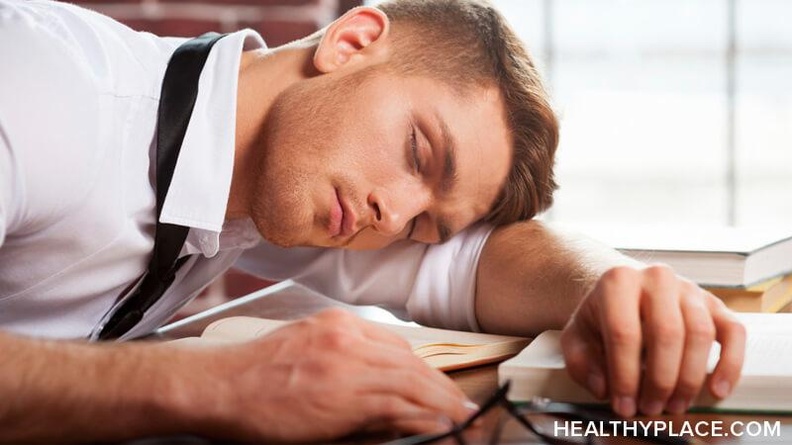How PTSD Causes Insomnia (and What to Do About It)
Posttraumatic stress disorder (PTSD) and insomnia can go hand-in-hand. Insomnia is one of the most common sleep disorders in the world. With around 10-30% of the general population suffering from insomnia,1 it's normal to know a friend or two that has trouble sleeping at night. Because insomnia is such a common condition, it's often left out of the discussion around posttraumatic stress disorder. But with sleep disturbances proven to increase daily distress and dysfunction in the 80-90% of PTSD patients with insomnia,2 it's a PTSD symptom that shouldn't be forgotten.
PTSD, Insomnia, and Hyperarousal
Insomnia is so prevalent among people with PTSD because it falls under the hyperarousal category of PTSD symptoms. Hyperarousal can be described as a heightened state of anxiety that occurs when a person's fight-or-flight instinct fails to turn off after a dangerous or traumatic situation.3 What is meant to be a short-term boost of adrenaline turns into a chronic state of feeling on-edge for people suffering from PTSD.
Hyperarousal doesn't stop when it's time for bed and insomnia doesn't care when the body is tired. I get into bed each night exhausted from a full day of work, exercise, and socialization (which tires me out quite a bit as an introvert), but I still have trouble falling asleep. My insomnia is not caused by a lack of sleepiness; rather, it's caused by my inability to calm down.
Though insomnia runs in my family in general, I didn't start experiencing it on a regular basis until I developed PTSD. When my mind has a chance to quiet down after a long day, it immediately starts ruminating on past memories or any potential future catastrophes. The crickets chirping outside my window will remind me of nights spent hiding under the covers in my childhood bedroom. The creak of my neighbor's footsteps upstairs will make my heart pound as I question if I'm safe in my own apartment. Every little sound makes my mind snap to attention.
How to Fall Asleep Peacefully
Over time, I've developed habits that help me fall asleep faster. Figuring out which habits are the most effective for my lifestyle has been a learning process, and not every idea I've tested has worked. In high school, I tried sleeping with the lights on to keep my mind from wandering to dark places when I went to bed. It helped a little bit, but it also made it much harder to get restful sleep throughout the night. In college, I tried sleeping on the floor. While the hard surface did help me relax faster, it also made my body ache in the morning.
Out of all the methods I've tried to get myself to fall asleep faster, natural sleep aids have helped the most. I use them every night to help my body reach the sleepy state it can't quite find on its own. I've also discovered that reading is a great way to distract my mind while I'm lying in bed. Right now, I read random articles on my phone until I drift off, although I'm trying to switch over to reading books as the blue light from phone screens can disrupt the sleeping cycle.
Insomnia can be tough to handle, but there are plenty of ways to reduce this tiresome PTSD symptom. If you're struggling with insomnia, don't give up hope. Keep testing out different treatment methods until you find the solution that's right for your lifestyle.
Sources:
- Bhaskar, S., Hemavathy, D., and Prasad, S., "Prevalence of Chronic Insomnia in Adult Patients and Its Correlation with Medical Comorbidities." Journal of Family Medicine and Primary Care, October 2016.
- Koffel, E., Khawaja, I.S., and Germain, A., "Sleep Disturbances in Posttraumatic Stress Disorder: Updated Review and Implications for Treatment." Psychiatric Annals, March 2016.
- Biggers, A., "Hyperarousal: Symptoms and Treatment." Medical News Today, November 2017.
APA Reference
Avery, B.
(2019, August 5). How PTSD Causes Insomnia (and What to Do About It), HealthyPlace. Retrieved
on 2026, March 5 from https://www.healthyplace.com/blogs/traumaptsdblog/2019/8/how-ptsd-causes-insomnia-and-what-to-do-about-it
